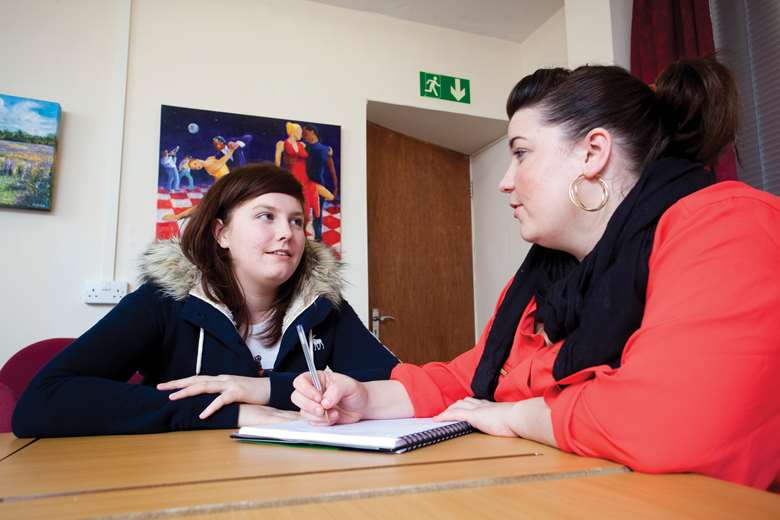Understanding youth work's impact
Bethia McNeil
Tuesday, March 3, 2015
The Centre for Youth Impact aims to develop new ways to understand the benefits youth work brings.

"Impact" is a concept that simultaneously unites and divides those who work with young people. It can be defined as the difference between a world with your provision in it, and a world without. Another way to look at it is what young people would say has changed for them as a result of their relationship with you.
This difference can unite those working with young people - it is what "provides meaning" in what they do, as one youth worker said to me recently. However, the question of impact can also divide opinion, particularly in relation to how you measure it.
We need to be clear on the context in which impact has gained a foothold: in the midst of a funding crisis, which has seen the large scale dismantling of local authority youth services and massive pressure on the voluntary sector, impact has taken on a particular role. In late 2013, Nick Hurd, the then minister for civil society, challenged the youth work sector to "get better at measuring and demonstrating its value".
Answers to problems
There is an obvious suggestion that showing impact offers answers to big problems. But many who work with young people remain unconvinced.
It cannot be denied that the way impact has been positioned is unhelpful, particularly the suggestion that effective articulation of impact can make organisations and their projects more sustainable.
Demonstrating impact threatens to become the mother of all hoops to jump through. We focus far less on understanding impact, or thinking about how we create it: is what I do making any difference? What is that difference? And for whom?
But understanding impact in work with young people is hard - there remains no consensus on how, or whether it's even possible, to measure impact on the personal and the social level, or for communities.
However, I believe that there are three key opportunities for youth work professionals and services to think about impact.
First, it is helpful to focus on understanding and creating impact, not just demonstrating it. Understanding impact involves building strong foundations across design, delivery and evaluation. These foundations are about building confidence in what you do, and the likely difference it will make.
Demonstrating value
Second, we need to rethink how we use evidence. Within a narrative about "demonstrating value", evidence is frequently used to mean "proof". But evidence is merely information in support of an assertion. It can be strong or weak. There are many ways to generate evidence, and most organisations are sitting on mountains of it, but it needs to be proportionate and fit for purpose. What question are you trying to answer? What's your assertion?
Third, if impact measurement will not be solved by everyone going off and doing their own thing, neither will it be solved by providers working without commissioners or funders, or the voluntary sector without local authorities. It is most likely to develop by testing out practical applications together, and through sharing. This is what the Centre for Youth Impact is aiming to do.
It's unlikely that we will reach total consensus on impact measurement in work with young people - and perhaps that is not even desirable. Much more likely is finding points of commonality, interesting ideas and building communities of practice.
Bethia McNeil is director for the Centre for Youth Impact
TOP TIPS ON IMPACT
- Be clear about what your intended impact is, what that impact looks and feels like to young people, and how and why what you do will achieve it
- Give careful thought to the question you want to ask when you are planning your evaluation - different questions involve different ways of finding out the answers
- Find out what other people have done before you risk re-inventing the wheel
- Equip young people with the tools and knowledge they need to play a meaningful role in the design and undertaking of research and evaluation
- Get to know the evidence - what evidence can you draw from practice, and what practice can you draw from evidence?
- Think more broadly than outcomes and build confidence in your ability to create impact
AT-A-GLANCE GUIDE TO THE CENTRE FOR YOUTH IMPACT
- Launched in November 2014, the Centre for Youth Impact is funded in its pilot phase by the Cabinet Office
- It is a partnership between the National Council for Voluntary Youth Services, Project Oracle and the Social Research Unit at Dartington
- The aim of the initiative is to increase the capacity of those providing and commissioning services for young people to generate and use high-quality evidence in the design, delivery and evaluation of services
- London Youth, Foyer Federation and Brathay Trust are early adopters acting as links between the centre and existing youth work networks to share knowledge and resources
- It will build on work undertaken in 2012 by London Youth, Brathay Trust, the British Red Cross and Catalyst Consortium to develop the Framework of Outcomes for Young People.




